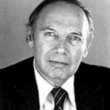In retrospect: the tragedy and lessons of Vietnam
Description
More Details
9780812925234
Also in this Series
Published Reviews
Choice Review
He was the best of "the Best and Brightest," and such a prolific spokesman for the Vietnam War that it was called McNamara's War. When he could no longer support what he had created and defended unswervingly, he left quietly and kept his silence for almost 30 years. Now that he has spoken--in this extraordinary book--he has reinflamed all the old passions and ignited a media extravaganza. The issue and controversy of Robert McNamara's mea culpa aside, this is one of the most important books on Vietnam in years. It recaptures for even the most learned specialist the time and the tone of the Vietnam era and personalities that allowed the war to happen. McNamara's perspective is one of the most important on the complex and enigmatic Lyndon Johnson and on the other principal military and civilian players. The workings of McNamara's own mind then and now are fascinating. He reemphasizes the interconnection between his abiding concern with the danger of nuclear war and Vietnam, and his list of the lessons of Vietnam are astute and wise. This is the most forthright memoir about culpability, error, and moral failure that this reviewer knows. Whatever one may think of him, this book should be read by everyone who grapples with the tragic experience that McNamara now says was, "wrong, terribly wrong." All levels. J. P. Dunn; Converse College
Booklist Review
Breaking 27 years of silence, former defense secretary McNamara seeks "to put Vietnam in context" and counter "the cynicism and even contempt with which so many people view our political institutions and leaders." The two administrations McNamara served made their "terribly wrong" decisions, he argues, because of "an error not of values and intentions but of judgment and capabilities." Though one brief chapter sketches McNamara's life before 1961, In Retrospect is more than memoir: Annapolis history professor VanDeMark--author of Into the Quagmire (1990)--supplied thorough research files, including newly declassified documents, and reviewed McNamara's drafts for historical accuracy. McNamara maintains that U.S. Vietnam policy rested on contradictory premises: a "domino" theory that, in retrospect, overstated the threat to U.S. security and world peace if Ho Chi Minh's forces won; and recognition that if the South Vietnamese were not committed to defending themselves, no other nation could do it. McNamara assumes responsibility for failing to address that contradiction and other unexamined assumptions and undebated disagreements that plagued decision making in these years. He identifies "eleven major causes for our disaster in Vietnam" and six points when the U.S. could legitimately have withdrawn. Certainly not the last word on this still-controversial subject but an essential acquisition for most libraries. --Mary Carroll
Publisher's Weekly Review
Former Secretary of Defense McNamara's controversial indictment of American policy in Vietnam was a PW bestseller for 12 weeks. (Mar.) (c) Copyright PWxyz, LLC. All rights reserved
Library Journal Review
McNamara, Secretary of Defense from 1961 to 1967 under both presidents Kennedy and Johnson, has remained silent about U.S. policy toward Vietnam until now. This memoir reveals a decent, loyal, and able man who struggled to remain loyal to the president and yet to get the United States out of Vietnam. When McNamara left office, 15,979 Americans had been killed in Viet Nam; by the time the United States left Vietnam, the number stood at over 58,000. McNamara's recollections are put to rigorous testing by his junior author, VanDeMark, who checked them against the now-declassified written and taped records of the period. Publicly perceived as a "hawk," McNamara documents his attempts from 1966 on to find a way for the United States to exit from the war. The culmination of his effort is a May 19, 1967 memorandum to LBJ, calling for U.S. withdrawal. President Johnson never sent a reply. McNamara reveals that "I do not know to this day, whether I quit or was fired." At any rate, McNamara left the Pentagon to begin a successul ten-year term as president of the World Bank. In looking back, he holds that "we sought to do the right thing...but in my judgment hindsight proved us wrong." McNamara's unpretentious, genuine, and touching memoir should contribute further to healing the wounds of the Vietnam experience; it belongs in all public and academic libraries.James Rhodes, Luther Coll., Decorah, Ia. (c) Copyright 2010. Library Journals LLC, a wholly owned subsidiary of Media Source, Inc. No redistribution permitted.
Library Journal Reviews
McNamara, Secretary of Defense from 1961 to 1967 under both presidents Kennedy and Johnson, has remained silent about U.S. policy toward Vietnam until now. This memoir reveals a decent, loyal, and able man who struggled to remain loyal to the president and yet to get the United States out of Vietnam. When McNamara left office, 15,979 Americans had been killed in Viet Nam; by the time the United States left Vietnam, the number stood at over 58,000. McNamara's recollections are put to rigorous testing by his junior author, VanDeMark, who checked them against the now-declassified written and taped records of the period. Publicly perceived as a "hawk," McNamara documents his attempts from 1966 on to find a way for the United States to exit from the war. The culmination of his effort is a May 19, 1967 memorandum to LBJ, calling for U.S. withdrawal. President Johnson never sent a reply. McNamara reveals that "I do not know to this day, whether I quit or was fired." At any rate, McNamara left the Pentagon to begin a successul ten-year term as president of the World Bank. In looking back, he holds that "we sought to do the right thing...but in my judgment hindsight proved us wrong." McNamara's unpretentious, genuine, and touching memoir should contribute further to healing the wounds of the Vietnam experience; it belongs in all public and academic libraries.?James Rhodes, Luther Coll., Decorah, Ia. Copyright 1995 Cahners Business Information.
Publishers Weekly Reviews
Former Secretary of Defense McNamara's controversial indictment of American policy in Vietnam was a PW bestseller for 12 weeks. (Mar.) Copyright 1996 Cahners Business Information.


































